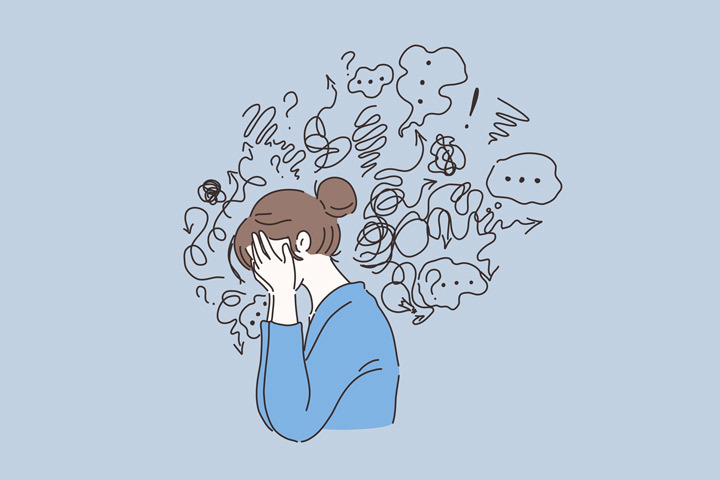Are you or someone you know struggling with the symptoms of psychosis? Psychotherapy can provide an effective way to help manage these symptoms and improve the overall quality of life.
It is important to understand how talk therapy, specifically psychodynamic therapy, can help bring about a change in thought processes, behaviors, and moods. In this blog post, you’ll learn more about how psychotherapy for psychosis works.
Symptoms of Psychosis

Source: medicalnewstoday.com
Psychosis refers to a group of symptoms that affect the mind and make it difficult for a person to determine what is real and what is not. Symptoms of psychosis can manifest differently in each person, and they may include hallucinations, delusions, disorganized thinking and speech, and lack of motivation and emotion.
Psychotherapy, specifically talk therapy, can be an effective treatment option for managing the symptoms of the illness. Psychosis therapy can provide a safe and supportive environment for individuals to express their thoughts and feelings, identify triggers that can worsen symptoms, and learn coping and problem-solving skills to manage their symptoms.
A trained therapist can help those with psychosis identify cognitive distortions and beliefs that may be contributing to their symptoms and help them develop more adaptive ways of thinking and perceiving the world around them.
While medication can be an essential part of treating psychosis, talk treatment can be an effective complement to medication and can help individuals with this illness live happier and more fulfilling lives.
What causes it?
Some common causes of psychosis include:
- Substance abuse or addiction
- Physical illness or injury
- Sleep deprivation
- Trauma or stressful life events
- Genetics
- Hormonal changes, such as during pregnancy or menopause
Overview of Psychotherapy for Psychosis

Source: verywellmind.com
This type of therapy consists of several approaches, including Cognitive Behavioral Therapy (CBT), Family Therapy, and Individual Therapy. CBT focuses on identifying and changing negative patterns of thought and behavior, whereas Family Therapy focuses on improving communication and relationships between family members. Individual therapy provides one-on-one support and guidance to help individuals manage their symptoms and improve their coping skills.
Psychotherapy for psychosis is often used in conjunction with medication and other forms of treatment, and it can help individuals with psychotic disorders achieve and maintain their recovery goals.
More on talk therapy

Source: phillymag.com
There are different types of talk therapy available to help manage symptoms and improve overall mental health:
1. Cognitive Behavioral Therapy
This type of therapy seeks to identify and change negative thought patterns that contribute to psychotic symptoms. CBT helps individuals learn coping mechanisms to manage delusions, hallucinations, and negative symptoms such as lack of motivation.
2. Family Therapy
Family therapy involves the participation of family members to improve communication and relationships with the individual experiencing psychosis. This type of psychotherapy can help reduce feelings of isolation and improve support networks.
3. Acceptance and Commitment Therapy
ACT is a form of psychotherapy that encourages individuals to accept their thoughts and feelings, rather than trying to suppress or eliminate them and commit to making positive changes in their behavior and lifestyle.
4. Psychodynamic Psychotherapy
This type of therapy focuses on uncovering unconscious thoughts and emotions that may contribute to psychotic symptoms. Through exploration of past experiences and relationships, individuals can gain insight and develop more positive coping skills.
5. Group Therapy
This type of therapy involves individuals with psychosis coming together in a supportive environment to share experiences and learn from others. Group therapy can help reduce feelings of loneliness and isolation while improving communication skills and self-esteem.
Benefits of Psychotherapy for Psychosis

Source: vogue.in
Some of the key benefits of psychotherapy for psychosis include:
- Increased self-awareness and understanding of symptoms and their triggers, leading to improved coping strategies and symptom management.
- Improved social and communication skills, enabling individuals to build better relationships with others and reduce feelings of isolation.
- The development of a trusting and supportive therapeutic relationship, providing a safe space for individuals to explore their thoughts and feelings.
- Improved insight into negative thought patterns and beliefs, allowing individuals to develop more positive and adaptive ways of thinking.
- Reduced dependence on medication as a sole treatment option, with psychotherapy often used in conjunction with medication to enhance overall treatment effectiveness.
Are there any challenges?
Firstly, it can be difficult to establish trust and rapport with patients experiencing a break from reality due to psychosis. They may not believe their hallucinations are a part of their illness and may not understand the need for therapy.
Secondly, misconceptions surrounding the effectiveness of psychotherapy may prevent some patients from seeking it out. Some believe that medication is the only effective treatment for psychosis.
Thirdly, the symptoms of psychosis can make it difficult for patients to participate fully in therapy. They may lack the ability to focus or engage in conversation and may be too paranoid or fearful to share their experiences.
Despite these challenges, research shows that psychotherapy for psychosis can be an essential part of treatment, particularly when used in conjunction with medication. By providing a safe and supportive environment, therapists can help patients identify and manage their symptoms, work through trauma, and rebuild their lives.
Mental health stigma

Source: theteenmagazine.com
Mental health stigma refers to negative attitudes, beliefs, and behaviors toward people with mental health conditions. It can manifest in various ways, such as discrimination, exclusion, and prejudice. Stigma can be a significant barrier to seeking help and receiving appropriate treatment, as people with mental health issues may feel ashamed, embarrassed, or afraid of being judged.
Stigma can arise from various sources, including cultural norms, media portrayals, and personal experiences. For example, cultural beliefs that equate mental illness with weakness or personal failure can contribute to stigma. Media depictions of people with mental health issues as violent or unpredictable can also reinforce negative stereotypes. Personal experiences, such as being treated differently by friends or family after disclosing a mental health condition, can also contribute to internalized stigma.
The consequences can be severe. It can lead to social isolation, decreased opportunities, and reduced quality of life. It can also prevent people from seeking help, leading to delays in treatment and poorer outcomes. Stigma can also result in inadequate funding for mental health services and a lack of research attention to mental health issues.
Reducing mental health stigma requires a concerted effort from individuals, communities, and institutions. Education and awareness-raising campaigns can help dispel myths and promote an understanding of mental health issues. Challenging negative attitudes and behaviors towards people with mental health conditions can also help reduce stigma. Creating supportive environments that encourage help-seeking and inclusion can also play an important role in reducing stigma.
Conclusion
Psychotherapy for psychosis can be a powerful tool to help manage symptoms of the disorder. It provides individuals with skills, strategies, and support that can facilitate recovery. Additionally, psychotherapy allows individuals to process their experiences in a safe space and helps build resilience against future episodes. If you or someone you know is struggling with psychosis, speak to your healthcare provider about the potential benefits of talk therapy as part of an integrated treatment plan.




